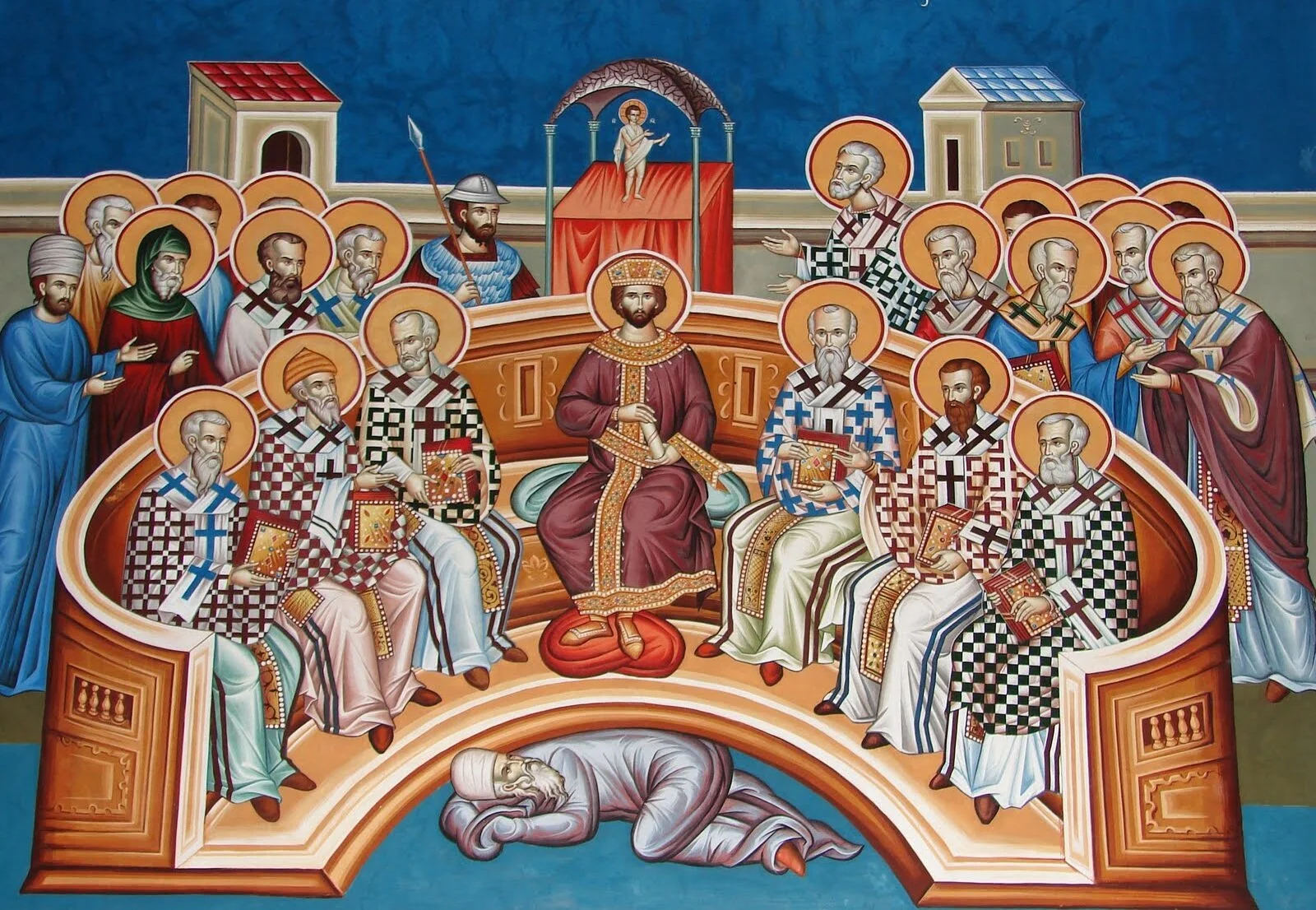At 8:30 AM Morning Prayers (Orthros) and 9:30 AM Divine Liturgy, *Stay at home* obeying the “Shelter in Place,” and pray with us via our parish live-stream on our FaceBook page and our YouTube page.
Read along with Orthros: Read along with Divine Liturgy:
Sunday of the Fathers of the 1st Ecumenical Council
The heresiarch Arius was a Libyan by race and a proto-presbyter of the Church of Alexandria. In 315, he began to blaspheme against the Son and Word of God, saying that He is not true God, consubstantial with the Father, but is rather a work and creation, alien to the essence and glory of the Father, and that there was a time when He was not. This frightful blasphemy shook the faithful of Alexandria. Alexander, his Archbishop, after trying in vain to correct him through admonitions, cut him off from communion and finally in a local council deposed him in the year 321. Yet neither did the blasphemer wish to be corrected, nor did he cease sowing the deadly tares of his heretical teachings; but writing to the bishops of other cities, Arius and his followers requested that his doctrine be examined, and if it were unsound, that the correct teaching be declared to him. By this means, his heresy became universally known and won many supporters, so that the whole Church was soon in an uproar.
Therefore, moved by divine zeal, the first Christian Sovereign, Saint Constantine the Great, the equal to the Apostles, summoned the renowned First Ecumenical Council in Nicaea, a city of Bithynia. It was there that the shepherds and teachers of the Church of Christ gathered from all regions in the year 325. All of them, with one mouth and one voice, declared that the Son and Word of God is one in essence with the Father, true God of true God, and they composed the holy Symbol of Faith up to the seventh article (since the remainder, beginning with "And in the Holy Spirit," was completed by the Second Ecumenical Council). Thus they anathematized the impious Arius of evil belief and those of like mind with him, and cut them off as rotten members from the whole body of the faithful.
Therefore, recognizing the divine Fathers as heralds of the Faith after the divine Apostles, the Church of Christ has appointed this present Sunday for their annual commemoration, in thanksgiving and unto the glory of God, unto their praise and honor, and unto the strengthening of the true Faith.

